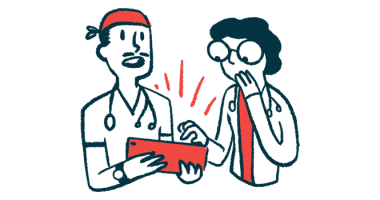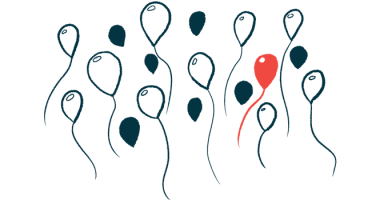What to remember when a favorite doctor says goodbye
Losing a healthcare provider is difficult when you have acute hepatic porphyria

One night last week, the late-afternoon spring air hinted of summer, warm enough for me to imagine sitting on a patio with a mocktail. So my partner, Michael, and I layered on active gear, pumped up tires, and fastened our helmets. One of the great joys in our relationship is getting out on the trails, identifying a destination, and then meandering there on the backs of our bicycles.
When bouts of acute illness chipped away at my stamina, it affected my ability to ride with him. It’s the entire reason I invested in an electronic bike two years ago.
By the time I powered on my e-bike, mounted, and pushed off, Michael was halfway down the block. I, on the other hand, took a second to warm up. It’d only been a few months, but I was no longer accustomed to the slant of my torso from seat to handlebars. Soon I remembered the feeling of the road beneath me and felt the pedal-assist feature take over as I moved my legs.
I traverse my neighborhood streets nearly every day, but perched on my bicycle seat, I have a different perspective. I have to be mindful of bumps, potholes, and hills.
Where we live, just west of the urban core of Des Moines, Iowa, streets rise and fall, flowing toward a city skyline. Riding toward downtown, we’ve flown down these hills, holding tight to our handlebars, letting the wind lick our white knuckles and exposed ankles.
I came to the first downhill of our journey too quickly to register hesitation, to consider a more calculated approach. When the earth dropped from under me, my body suddenly fell into a downward-pointing angle, and I quickly picked up speed.
My knee-jerk reaction was to squeeze my brakes. It was too much, too fast, and I wasn’t ready.
Losing a doctor
When you’re living with symptoms of chronic illness, it’s not easy to connect with knowledgeable healthcare providers. In my case, most have never heard of acute hepatic porphyria, they may not have the time to get curious about treatments, or they may not be amenable to patient collaboration. From the first appointment, I expect to feel a high degree of vulnerability. And with a history of medical trauma, I’ve found that vetting new doctors is a scary prospect.
Still, I’ve worked hard to develop relationships and build a network of doctors, who each understand porphyria and play an important role in maintaining my quality of life.
But in March, a cherished healthcare provider told me he was leaving for another practice. When he shared his plans, I was happy for him and his family, whom I’ve heard so much about over the years. I smiled, even as my insides barreled downhill, out of control.
From my first day in his office, this provider offered me a judgment-free zone and met me where I was at. He started by listening attentively to my story, for as long as it took me to recount. For the first time in a clinical setting, I felt secure enough to be honest about my pain, the ways it limited my life, and how I tried to manage it. He created a safe container for an open dialogue and all accompanying emotions.
Pain, especially chronic pain, is highly stigmatized. I used to be stuck in a cycle of uncontrolled, mismanaged pain, frequent emergency room visits, and the frustration of being misunderstood. I’d grown accustomed to minimizing symptoms so I wouldn’t risk being labeled a “drug-seeker.” His treatment approach showed me that I could open up to providers.
Soon I started demanding more from my care. Eventually, my quality of life began to improve.
Facing the downhill
As a kid, I rode around using no hands, waving my arms about in the air like it was the easiest thing in the world. I wanted to go faster and faster down every hill. As an adult, I still love that adrenaline-pumping rush, but only after I feel the security of a seat beneath me. I have to believe I’m safe before I can enjoy it. And I definitely hold on with both hands.
When my provider told me he was leaving, the ground dropped out from under me and I became overwhelmed. I wasn’t prepared for the hill; it was too intimidating. But I’ve been careening down headfirst before and survived. The last time I had to “doctor shop,” I didn’t fully trust myself or understand what I needed for a satisfying provider-patient relationship. I may not enjoy the process, but these days, I’m better equipped to handle it.
Grieving the loss of a favorite doctor is hugely important. And soon I’ll have to start over again with someone new. But I can’t let fear discount all I’ve learned or the security I’ve found in owning my truth.
Note: Porphyria News is strictly a news and information website about the disease. It does not provide medical advice, diagnosis, or treatment. This content is not intended to be a substitute for professional medical advice, diagnosis, or treatment. Always seek the advice of your physician or other qualified health provider with any questions you may have regarding a medical condition. Never disregard professional medical advice or delay in seeking it because of something you have read on this website. The opinions expressed in this column are not those of Porphyria News or its parent company, BioNews, and are intended to spark discussion about issues pertaining to porphyria.








Comments